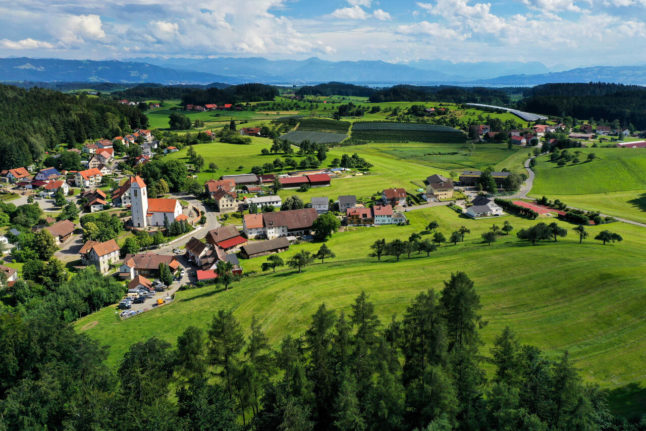With housing shortages and climbing rents in many big German cities, the Association of Towns and Municipalities has called for people in Germany to consider a move to the countryside.
READ ALSO: What experts say will happen to the housing market in 2023
According to the Association, there are currently 1.3 million empty homes in rural regions throughout Germany. Chief Executive Gerd Landsberg told the Funke Media Group: “It would therefore make sense to make these regions more accessible with good transport links, for example through new or reactivated rail lines, so that people can live and reside there well and at a reasonable price.”
The increased ability that many professions now have of working from home also creates new opportunities in the countryside, he said.
Earlier this year, Germany’s coalition government announced that it would miss its own target of building 400,000 new homes per year. To make matters worse, a recent report by real estate experts found that Germany is facing its worst housing deficit in 20 years, and expects there to be a shortage of around 700,000 apartments in Germany by 2025.
Rising interest rates are making financing new building projects more difficult, and the increasing requirements for energy-efficient refurbishment are making construction even more expensive.
READ ALSO: Why Germany is seeing the ‘worst housing shortage in 20 years’
“With calls for ever cheaper rents or even a nationalisation of housing companies, we are unfortunately not getting any closer to the goal,” Landsberg said. The need for housing, especially in metropolitan regions, is growing unabated, he said.
A recent study by the regional portal meinestadt.de also showed that, amongst young people, the idea of moving to a more peaceful life in the countryside is gaining popularity.
Of the 3,000 people between the ages of 18 and 31 surveyed, 61 percent said they would rather live in the countryside than in an urban area, and 77 percent would prefer a quiet location to a central one. In addition to the idyllic countryside with its peace and tranquillity, around half of them also associate living in the countryside with affordable housing.




 Please whitelist us to continue reading.
Please whitelist us to continue reading.
Member comments